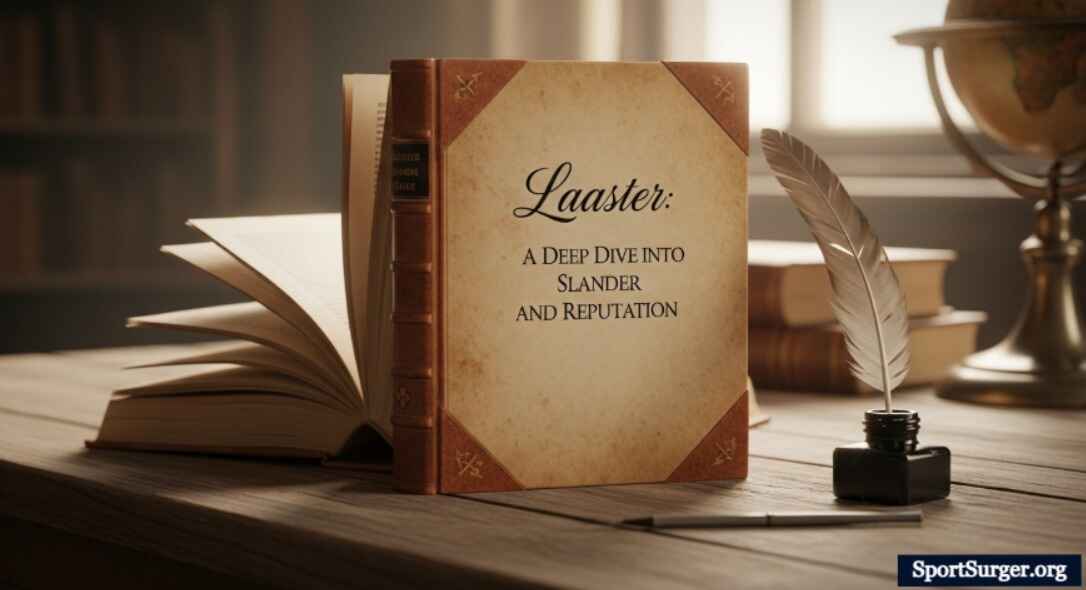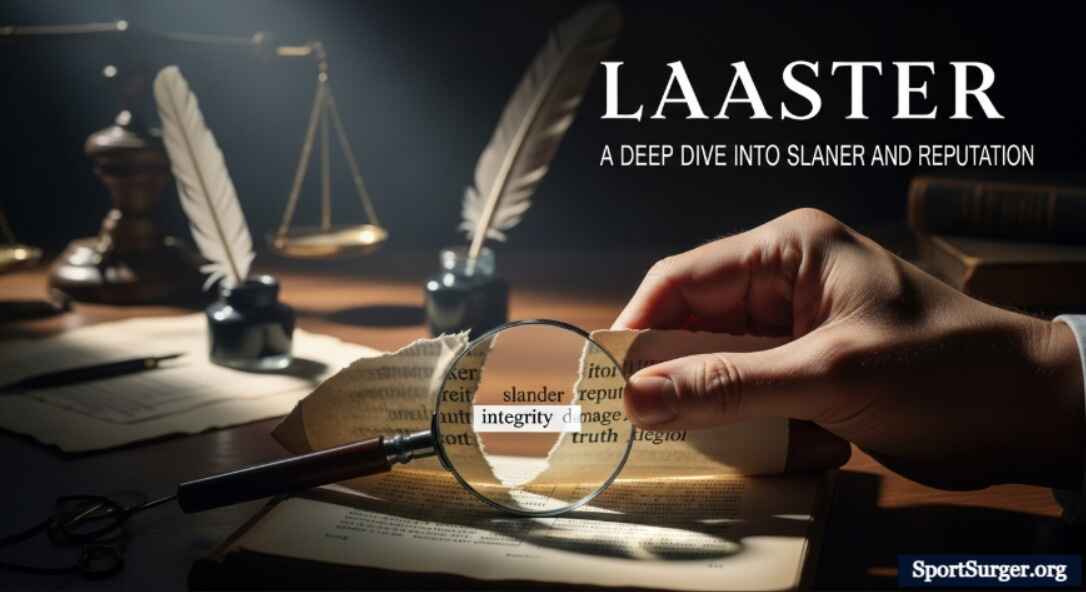Introduction
The term laaster may appear unfamiliar to many readers, yet it holds deep significance in various contexts. Historically, linguistically, and even metaphorically, laaster has been used to represent ideas linked to reputation, integrity, and the consequences of words.
Understanding laaster is not simply about its definition—it is about exploring its roots, cultural impact, and applications in modern society.
In this article, we will unpack the meaning of laaster, examine its origins, provide real-world examples of its use, and discuss why it continues to be relevant today. Whether you are a language enthusiast, a researcher, or simply curious, this guide offers an in-depth, engaging look at the concept of laaster.
What Does Laaster Mean?

At its core, laaster is associated with slander, defamation, or negative speech directed at a person. It refers to the act of spreading false or damaging statements about someone, often with the intention of harming their reputation.
In different languages and cultural settings, laaster takes slightly varied forms but consistently relates to:
- Gossip and slander – Spreading rumors or false claims.
- Character defamation – Damaging someone’s personal or professional credibility.
- Malicious speech – Using words to deliberately cause harm.
Key Takeaway
Laaster is more than a simple insult—it is a serious act that can influence reputations, relationships, and even legal outcomes.
The Etymology and Origins of Laaster
Understanding the history of a word often helps us grasp its depth. Laaster traces back to Middle Dutch and Germanic roots, where it was tied to terms denoting blame, reproach, or false accusation.
- Dutch usage: In Dutch, “laaster” has long referred to slander or malicious talk.
- German connections: The German word Lästerung still means “blasphemy” or “slander.”
- English parallels: While less commonly used in English, similar words like “defamation” and “libel” convey the same concept.
This linguistic history shows how the idea of laaster has been culturally recognized for centuries as a form of harmful speech.
Laaster in Legal and Social Contexts
In the modern world, laaster takes shape in both legal and social spheres.
1. Laaster in Law
Most legal systems classify laaster under defamation laws, which protect individuals from false or damaging statements. The law distinguishes between:
- Libel: Written defamation.
- Slander: Spoken defamation.
Penalties can include financial damages, public retractions, or even criminal charges in certain jurisdictions.
2. Laaster in Society
Outside the courtroom, laaster plays a critical role in shaping social dynamics. Examples include:
- Workplace rumors are damaging careers.
- False claims are spreading online through social media.
- Malicious gossip breaks personal relationships.
Real-World Examples of Laaster
To better understand laaster, let’s look at some practical scenarios:
- Case Study: Workplace Laaster
An employee spreads untrue stories about a colleague being dishonest. This harms the colleague’s reputation and reduces trust in the workplace.
- Case Study: Online Laaster
A social media influencer is falsely accused of misconduct, leading to a loss of followers and sponsorship deals.
- Case Study: Historical Laaster
Throughout history, rulers and leaders have been victims of laaster, with propaganda used to discredit them.
These examples highlight the seriousness of laaster as more than idle talk—it carries consequences for personal lives, careers, and society at large.
The Psychological Impact of Laaster
The effects of laaster are not only legal or reputational—they can be deeply personal. Victims often experience:
- Stress and anxiety from public shame.
- Damaged self-esteem due to loss of respect.
- Strained relationships with friends, family, or colleagues.
Research in psychology confirms that verbal harm can be as damaging as physical harm, making laaster a powerful social weapon.
Preventing and Addressing Laaster
While laaster may be difficult to avoid entirely, individuals and organizations can take proactive steps to prevent and address it.
How to Prevent Laaster:
- Promote transparency – Clear communication reduces room for rumors.
- Educate about consequences – Teaching people about the harm caused by laaster discourages it.
- Encourage positive dialogue – Building a culture of respect lowers slanderous behavior.
How to Address Laaster When It Happens:
- Gather evidence: Keep records of defamatory statements.
- Seek mediation: Try resolving conflicts through dialogue.
- Take legal action: If severe, pursue legal remedies under defamation laws.
- Protect mental health: Seek counseling or support networks to cope with emotional harm.
Laaster in the Digital Age
With the rise of digital communication, laaster has become more widespread than ever. Online platforms provide anonymity and reach, making slander easier to spread.
- Social Media Laaster: False accusations can go viral within hours.
- Online Reviews: Businesses may face defamatory reviews that harm sales.
- Forums and Blogs: Anonymous users may target individuals with unfounded claims.
Digital laaster poses unique challenges because content spreads fast and is difficult to erase completely
Expert Opinions on Laaster

Experts across legal, psychological, and communication fields emphasize the dangers of laaster.
- Legal experts stress that freedom of speech does not include the freedom to defame.
- Psychologists highlight that the trauma of laaster can lead to long-term emotional scars.
- Sociologists explain that laaster weakens social trust and creates division within communities.
Conclusion
Laaster is more than a word—it is a concept that reflects the power of language, the fragility of reputation, and the importance of truth. By recognizing what laaster means, its consequences, and how to address it, individuals and organizations can foster healthier, more respectful communication.
Understanding laaster helps us:
- Protect reputations and relationships.
- Navigate legal and ethical boundaries.
- Build stronger, more trustworthy communities.
FAQs
What is the main meaning of laaster?
Laaster refers to slander, defamation, or false speech meant to harm someone’s reputation.
Is laaster illegal?
Yes, in many countries, laaster falls under defamation laws, which can lead to civil or criminal penalties.
How is laaster different from gossip?
Gossip may involve sharing information—true or false—while laaster specifically refers to false, harmful statements.
Can laaster happen online?
Yes, online platforms have made laaster more common and more damaging, as false information spreads quickly.
How can someone protect themselves from laaster?
By documenting incidents, seeking legal advice, promoting transparency, and prioritizing mental health, individuals can reduce its impact.

